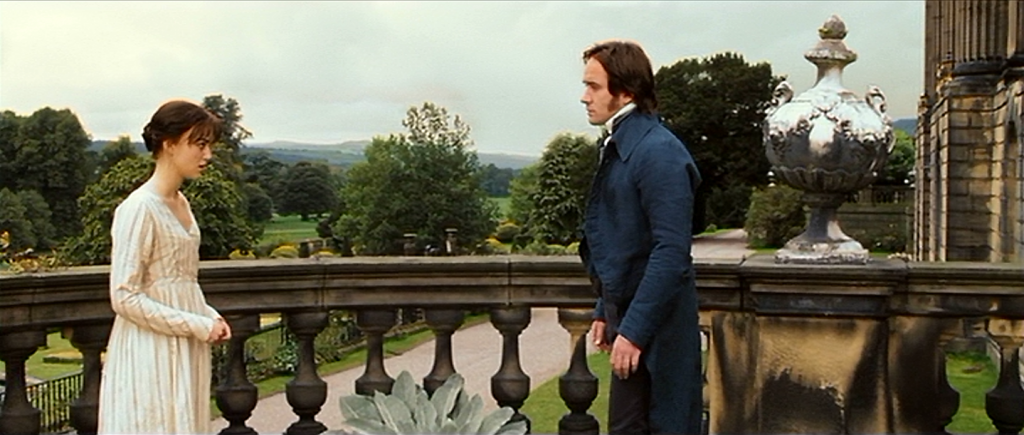Writing Lesson: Learning about Common Ground from “Breakfast at Tiffany’s”
I’ve always loved the song “Breakfast at Tiffany’s”–it’s catchy, has a nice tune, and I’ve always loved the idea that a movie, a story, or a book could help save a relationship, provide a talking point and a common connection.
This idea, of finding common ground, is essential to writing, both in persuasive writing (if, for example, I want to convince you to vote a certain way or pay for my ice cream) and in fiction (think dialogue and the blossoming and deterioration of character relationships).
Let’s start by looking at the first verse and the chorus of the song:
You say that we’ve got nothing in common
No common ground to start from
And we’re falling apart
You’ll say the world has come between us
Our lives have come between us
But I know you just don’t care
And I said “what about ‘Breakfast at Tiffany’s?'”
She said, “I think I remember the film,
And as I recall, I think, we both kinda liked it.”
And I said, “Well, that’s the one thing we’ve got.”
Much of the time our failures to communicate come from lack of common ground. Too often in today’s polarized, politicized world we see every issue, every event, as black and white, and so instead of talking to each other we throw verbal stones and don’t end up accomplishing anything.
Example 1: Abortion Arguments
Take the abortion issue. We have pro-life arguments and we have pro-choice arguments and both are based on such completely different world views that both sides can only see inhumanity in the others’ arguments. As a result, we argue to argue, and never actually persuade anyone.
Several years ago, in the Persuasive Writing class I taught at BYU, a student named Mandy wanted to make an argument against abortion. I told her it would be very challenging to do in a way that wouldn’t offend her audience so much in the first paragraph that they either would stop read, or read on only to mock. Mandy pulled off an argument that wouldn’t convince everyone, but found common ground and would be enough to start a conversation with the opposing viewpoint.
Her introduction talked about several of her good friends in high school, who had chosen, for various reasons, to have abortions. Then she talked about how one of those friends is now having problems trying to have children as a result of the abortion. Throughout the paper, Mandy discussed some of the medical risks and potential future repercussions on the female body of having an abortion. She found common ground in a topic where common ground is scarce, by addressing concern for the female body and the desire to have a future family. It was not a perfect argument, but it was a very good one.
Example 2: Pride and Prejudice
One of my favorite stories is Jane Austen’s Pride and Prejudice. The entire premise is about how preconceived notions, pride, and false information get in the way of communication and relationships, effectively eliminating any chance to have common ground. When characters, through their words, are able to find common ground, their relationships progress; when they don’t, they diminish.
One of my favorite bits of dialogue is actually from one of the many adaptations of the novel, in the 2005 film version Pride & Prejudice. The last time Miss Elizabeth and Mr. Darcy saw each other was when Miss Elizabeth (strongly) rejected Mr. Darcy’s marriage proposal, sending many insults. Mr. Darcy then gave Miss Elizabeth a letter, attempting to create common ground by explaining where he was coming from, the history and meaning of his actions.
Fast forward to when Miss Elizabeth tours Pemberley (Mr. Darcy’s house), and they accidentally run into each other. (Watch the film to get the facial expressions. Also, note the distance visually between them on the screen.)
Darcy: “Miss Elizabeth.”
Elizabeth: “I thought you were in London.”
Darcy: “No. No I’m not.”
They accidentally talk over each other, both trying to say something, anything.
Elizabeth: “I’m in Derbyshire with my aunt and uncle.”
Darcy: “And are you having a pleasant trip?”
Elizabeth: “Very pleasant. Tomorrow we go to Matlock.”
Darcy: “Tomorrow? Are you staying at Lampton?”
Elizabeth: “Yes, at the Rose and Crown.”
Darcy: “Yes.”
Elizabeth: “I’m so sorry to intrude. They said that the house was open for visitors. I had no idea…”
Darcy: “May I see you back to the village?”
Elizabeth: “No. I’m very fond of walking.”
Darcy: “Yes. Yes I know.”
Elizabeth: “Goodbye Mr. Darcy.”
Both characters are trying to find something to talk about, while avoiding the elephant in the room. While the conversation is a bit like talking about the weather simply to have something to say, it is an attempt to start building common ground, and definite progress is made.
Example 3: State of the Union
Let’s look again at another attempt at persuasive argumentation. Whether or not you agree with President Obama’s politics, he is a good public speaker, one of the reasons he was elected.
Here’s the opening paragraphs of his 2011 State of the Union. Note how he attempts to create connection and common ground with both the Republicans and Democrats of Congress, and the American people in general.
Mr. Speaker, Mr. Vice President, members of Congress, distinguished guests, and fellow Americans:
Tonight I want to begin by congratulating the men and women of the 112th Congress, as well as your new Speaker, John Boehner. (Applause.) And as we mark this occasion, we’re also mindful of the empty chair in this chamber, and we pray for the health of our colleague — and our friend — Gabby Giffords. (Applause.)
It’s no secret that those of us here tonight have had our differences over the last two years. The debates have been contentious; we have fought fiercely for our beliefs. And that’s a good thing. That’s what a robust democracy demands. That’s what helps set us apart as a nation.
But there’s a reason the tragedy in Tucson gave us pause. Amid all the noise and passion and rancor of our public debate, Tucson reminded us that no matter who we are or where we come from, each of us is a part of something greater — something more consequential than party or political preference.
We are part of the American family. We believe that in a country where every race and faith and point of view can be found, we are still bound together as one people; that we share common hopes and a common creed; that the dreams of a little girl in Tucson are not so different than those of our own children, and that they all deserve the chance to be fulfilled.
That, too, is what sets us apart as a nation. (Applause.)
Obama alludes to an event, the shooting of Gabby Giffords, that was symbolic in the minds of the American people, that was an attack on democracy generally, and uses it to point to “common hopes and a common creed” shared across party lines. Then of course, he starts getting into the stuff that some people love him for and some people hate him for, but he’s done so after trying to set a base of understanding.
You can read the full address on NPR’s website.
Example 4: Scheherazade Style Negotiations
One of my favorite recent novels is Martine Leavitt’s Keturah and Lord Death. In the opening scene, Keturah finds herself lost in the forest. As she is about to die, she sees Lord Death and attempts to convince him to spare her. Her first few attempts fail–she tries to argue that she is not ready to die, but Lord Death explains that no one is. She attempts to tell him a story about a hart, but he is not interested. Finally, Keturah finds a story that makes Lord Death pause, because Keturah has at last found common ground:
“I was born into death, my grandmother has told me many times. It filled my mouth upon my first breath. I sucked it in, Grandmother says, and cried as if my heart were broken, and even my dead mother’s pap would not console me. My father searched you out to find my mother and died before my first tooth, so that it became my grandparents’ burden to raise me. Then my grandfather died after I had lived long enough to love him. I have been in conversation with you perhaps all my life.”
It takes more than this short story, but Keturah leaves her first conversation with Lord Death unharmed.
In Conclusion
Common ground will make or break an argument, or character dialogue. Here’s a few writing exercises I’ve found useful:
Persuasive Writing: read what the opposing viewpoint has written. Write 250 words from their viewpoint, believing it as your write it. Then make a list of five or six of their core beliefs, the things that matter to them. When you return to your argument, try to use one of them as common ground.
Character Dialogue: take two of your characters, and put them in an inn. Write a brief scene where neither character is trying to find common ground and see what happens. Write another brief scene where just one of the characters is trying to find common ground. Finally, write a scene where both characters are attempting, but only somewhat successfully, to find common ground.





Great writing exercise ideas here. Common ground is a great foundation goal for so many areas of our lives.
I love Keturah and Lord Death. And Marti was my YW leader (back in the day). :)